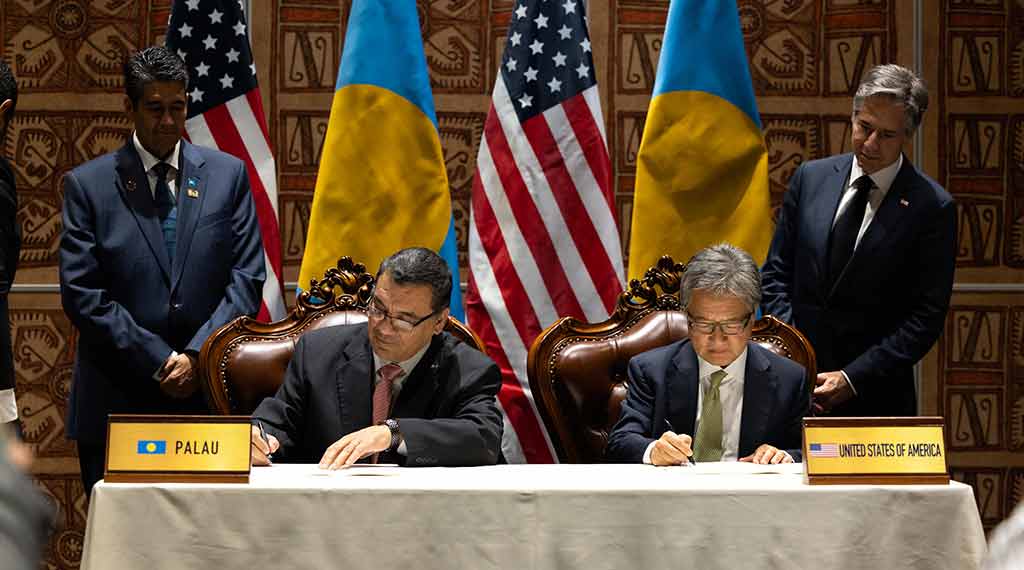US Congress’ COFA delay jeopardizes a key element of the ‘free and open Indo-Pacific’

Editor’s Note: This piece by Cleo Paskal features quotes from CSP Senior Fellow, Grant Newsham.
Months ago, negotiations concluded between the United States and the three U.S. Freely Associated States (FAS) – Palau, the Federated States of Micronesia (FMS) and the Republic of Marshall Islands (RMI) – on the terms of the renewals of key components of the Compacts of Free Association (COFA).
Those components cover primarily financial and service elements of the Compacts for the next 20 years, things like education programs, support for U.S. military veterans from the FAS who have returned home, and the postal service.
Those agreements then went to the U.S. Congress where they have been waiting to be approved. And waiting. And waiting.
…
In his congressional testimony, Grant Newsham, a retired Marine colonel and a senior fellow at the Center for Security Policy, estimated that should the COFA renewals fail, the cost to the U.S. of paying for the ships, aircraft, missiles, submarines, and troops required to secure the 5.6 million square kilometers covered by the Compact states would be around $100 billion – a year.
This has implications for the whole region. As Representative Amata Coleman Radewagen from American Samoa put it, the Compacts are “[o]ne of [the] most important tools that the United States has in supporting democracy and good governance while denying China the ability to project strategic power throughout the vast Pacific region.”
Some have argued that the defense and security components of the COFAs are unaffected by the current renewal process, as they are in a different part of the agreement.
- China, Look at the Numbers: Japan Threatens Nobody - December 8, 2025
- Newsham Breaks Down Latest China–Japan Standoff Near Senkakus Islands - December 4, 2025
- China’s Act of War Against PM Takaichi and Japan - November 24, 2025
